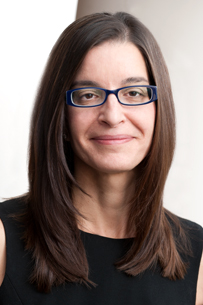 As I approach the end of my 10th year of teaching in a clinical program at the University of North Carolina School of Law, I have been thinking a lot about the value that students add to the dynamics of the courtroom on any given day, as well as what they contribute to the juvenile justice system as a whole. The same, of course, can be said about the contributions that students in other graduate disciplines, such as social work and public policy, offer to their field placements and other types of student internships.
As I approach the end of my 10th year of teaching in a clinical program at the University of North Carolina School of Law, I have been thinking a lot about the value that students add to the dynamics of the courtroom on any given day, as well as what they contribute to the juvenile justice system as a whole. The same, of course, can be said about the contributions that students in other graduate disciplines, such as social work and public policy, offer to their field placements and other types of student internships.
Recently I watched as one of my third-year students negotiated the terms of an admission with a prosecutor in a local juvenile delinquency court. The student, who I’ll call Carly, insisted the state did not have enough evidence to prove that her 14-year-old client had committed the crimes of breaking and entering or larceny. During the previous week, she had visited the scene of the offense, interviewed witnesses and researched the law. As a result, she knew that the police report was inaccurate — that one of the witnesses could not positively identify her client as the person seen leaving the empty house and that another witness had no intention of appearing in court. The most the state could prove, by Carly’s analysis, was that her client had conspired with another young person to break in, but that he had neither entered the premises nor possessed the stolen items — evidence consistent with a minor misdemeanor rather than a serious felony.
I stood several yards away while Carly made her pitch to the prosecutor, and I recognized the veteran lawyer’s facial expression: a mixture of bemusement and annoyance. Then Carly opened her case file and took out the police report, which was marked up and highlighted, and she methodically explained why the evidence was insufficient and why she had advised her client to fight the charges at an adjudicatory hearing. The investigating police officer in the case sat between them, listening closely as Carly argued that the elements of the offenses could not be proven beyond a reasonable doubt. When she had finished, the prosecutor slowly shook his head as he told her, “You are exhausting me.”
Moments later the case was called, and we hesitantly approached the front of the courtroom with the young client and his mother. “Do we have a deal?” I asked Carly. “I’m not sure,” she answered. “The prosecutor hasn’t told me his decision.” We soon learned that Carly’s offer had been accepted and that her client would admit to a single misdemeanor, a charge that was consistent with the evidence and acceptable to the teenager. In the context of juvenile defense practice, it was a win.
In 1899, when the first juvenile court in the United States was established in Chicago, the proceedings were closed to those who were not parties to the case, ostensibly for the purpose of protecting children’s privacy rights. In the decades that followed, as delinquency court sentences became more punitive and due process protections were ignored, there was a movement to open the courtroom to allow the public to observe and serve as witness to the proceedings. Yet the reality today is that even in states like North Carolina — where juvenile courtrooms remain open — outside observers are rarely present; instead, there are overworked defense attorneys, worn down by the systemic pressure to move cases, bargain away their clients’ rights and not ruffle the feathers of prosecutors or judges, who often determine case assignments.
This has created a system in which students practicing under the supervision of law school clinical professors provide the only scrutiny of these forums. They have been taught the meaning of burden of proof and inadmissible hearsay. They appreciate the necessity of rigorous advocacy by defense counsel, and they hold these principles to be essential to establishing an even playing field for their clients. Their faith that the other actors in the system — prosecutors, judges and police officers — will ultimately do the right thing, rather than being naïve and misplaced, is actually infectious. Their lack of cynicism helps ensure the integrity of the proceedings and re-inspires jaded lawyers like me, just as students in other disciplines infuse vigor into deliberations in their work settings and bring tenacity to the mission. This is why, after a decade of juvenile court practice, I am more than willing to continue — as long as I have a law student by my side.
Tamar R. Birckhead is associate professor of law and director of clinical programs at the University of North Carolina School of Law.
Pingback: Columna de Opinión (EEUU, Inglés): Students Help Keep Juvenile Court and Other Youth-Service Providers Honest | Juvenile Justice Information Exchange | NotiProyecto B